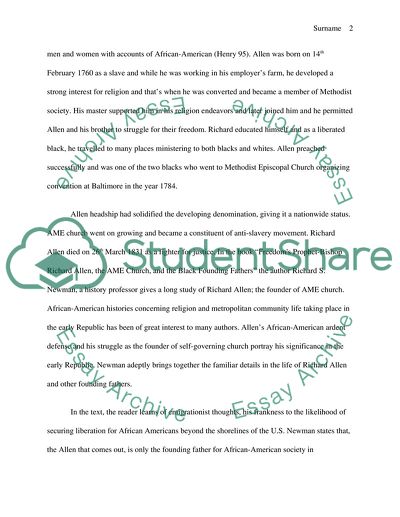Cite this document
(African Methodist Episcopal Church: Richard Allen's Emigrationist Case Study, n.d.)
African Methodist Episcopal Church: Richard Allen's Emigrationist Case Study. Retrieved from https://studentshare.org/religion-and-theology/1759616-richard-allen-founder-of-the-ame-church
African Methodist Episcopal Church: Richard Allen's Emigrationist Case Study. Retrieved from https://studentshare.org/religion-and-theology/1759616-richard-allen-founder-of-the-ame-church
(African Methodist Episcopal Church: Richard Allen'S Emigrationist Case Study)
African Methodist Episcopal Church: Richard Allen'S Emigrationist Case Study. https://studentshare.org/religion-and-theology/1759616-richard-allen-founder-of-the-ame-church.
African Methodist Episcopal Church: Richard Allen'S Emigrationist Case Study. https://studentshare.org/religion-and-theology/1759616-richard-allen-founder-of-the-ame-church.
“African Methodist Episcopal Church: Richard Allen'S Emigrationist Case Study”, n.d. https://studentshare.org/religion-and-theology/1759616-richard-allen-founder-of-the-ame-church.


